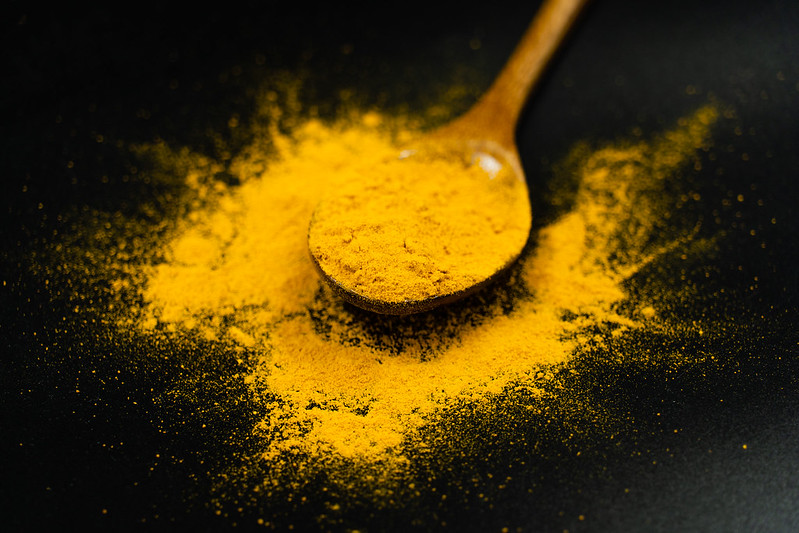Introduction
Turmeric has long been recognized as a powerful natural remedy, celebrated for its vibrant color, distinctive flavor, and remarkable health benefits. Often used in traditional medicine and as a key ingredient in curries, turmeric is widely praised for its anti-inflammatory and antioxidant properties. However, concerns have been raised regarding its impact on kidney health. Could a natural spice with so many benefits pose a risk to kidney function? Let’s explore the facts based on scientific research.
How Turmeric Affects Kidney Function
The kidneys perform a vital role in the body by filtering waste, balancing fluids, and maintaining overall health. Every substance you consume, including turmeric, eventually passes through these essential organs. While turmeric’s active compound, curcumin, is known for its health-boosting effects, it is crucial to understand how it interacts with the kidneys—especially for individuals with pre-existing kidney conditions.
Potential Risks of Turmeric for Kidney Health
1. Turmeric Contains Oxalates
Oxalates are naturally occurring compounds found in various plant-based foods. The concern arises when oxalates bind with calcium in the body, potentially leading to the formation of kidney stones. Since turmeric contains moderate levels of oxalates, excessive consumption—particularly in supplement form—may increase the risk of kidney stone formation in individuals who are prone to them.
Who should be cautious?
- Individuals with a history of kidney stones.
- People diagnosed with kidney disease or impaired kidney function.
2. High Doses May Strain the Kidneys
While using turmeric in cooking is generally safe, consuming large amounts through supplements could place extra stress on the kidneys. Some studies indicate that excessive curcumin intake might lead to kidney dysfunction in those with existing health conditions. The kidneys must work harder to process high levels of certain compounds, and in some cases, this could result in toxicity.
3. Interaction with Medications
Turmeric has the potential to interact with various medications, particularly those prescribed for kidney disease, diabetes, or blood thinning. Some examples include:
- Blood Thinners: Turmeric possesses natural blood-thinning properties, which could amplify the effects of anticoagulant medications such as warfarin, increasing the risk of bleeding.
- Diabetes Medications: Curcumin may help lower blood sugar levels, but when combined with diabetes medications, it could lead to hypoglycemia (dangerously low blood sugar levels).
Recommendation: If you are on medication for kidney disease or other health conditions, consult your healthcare provider before incorporating turmeric supplements into your routine.
Potential Benefits of Turmeric for Kidney Health
Despite the concerns, turmeric is not inherently harmful to kidney function. When consumed in moderation, it may offer several benefits for kidney health.
1. Anti-Inflammatory Effects
Chronic inflammation plays a significant role in the progression of kidney disease. Curcumin has been shown to inhibit inflammatory pathways, potentially reducing kidney inflammation and slowing disease progression. Some research suggests that curcumin could serve as a complementary therapy for kidney-related conditions, though more studies are needed for conclusive evidence.
2. Antioxidant Protection
Curcumin is a potent antioxidant, meaning it helps neutralize harmful free radicals that contribute to oxidative stress—a factor that can damage kidney cells. By reducing oxidative stress, turmeric may support overall kidney health when consumed responsibly.
How to Safely Consume Turmeric If You Have Kidney Concerns
If you enjoy turmeric but are concerned about its potential effects on kidney health, here are some tips for safe consumption:
1. Use Turmeric in Food Rather Than Supplements
- Adding small amounts of turmeric to meals (such as curries, soups, and teas) is generally safe.
- Avoid excessive use of turmeric supplements unless recommended by a healthcare professional.
2. Pair Turmeric with Calcium-Rich Foods
- Eating foods high in calcium (such as dairy products, leafy greens, and almonds) alongside turmeric can help bind oxalates, reducing the risk of kidney stone formation.
3. Stay Hydrated
- Drinking plenty of water helps flush out excess oxalates from the body, lowering the likelihood of kidney stone development.
Conclusion: Is Turmeric Safe for Your Kidneys?
For most people, turmeric does not pose a threat to kidney health when consumed in moderation. The primary concern lies in excessive intake, particularly through high-dose supplements. Individuals with a history of kidney stones or pre-existing kidney conditions should be mindful of their turmeric consumption and seek medical advice before incorporating supplements into their diet.
For the average person using turmeric in food, there is little reason to worry. As with most things in nutrition, balance is key. By consuming turmeric wisely and being aware of potential risks, you can enjoy its benefits while keeping your kidneys healthy.
Also Read About : Best Foods for Type 2 Diabetes Patients: A Complete Guide
Visit Us At : https://g.co/kgs/rTqAjgt





